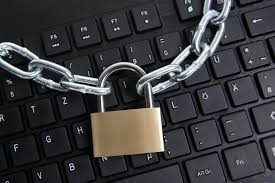Protecting Your Online Presence: A Comprehensive Guide to Website Security from YEWS
In today’s interconnected world, securing your website is not just a precaution but a necessity. As an established digital solutions provider with locations in Brisbane, Melbourne, and the Gold Coast, Your Easy Web Solutions (YEWS) is dedicated to imparting knowledge about the best practices in web hosting and security. This comprehensive guide will explore various strategies and tools to safeguard your website, ensuring robust security and uninterrupted functionality.
Choose a Secure Web Hosting Provider
Selecting the right web hosting provider is crucial for the security and performance of your website. A reliable provider ensures that your website is hosted on a secure server, reducing the risk of unauthorized access and data breaches.
Essential Features to Look for in Hosting Providers:
- SSL Certificate: Ensures secure data transmission by encrypting sensitive information, such as personal details or financial transactions, to protect against unauthorized access.
- Regular Software Updates: Safeguard your systems and applications by staying up-to-date with the latest patches and fixes.
- Network Monitoring: Employ robust network monitoring tools to constantly scan for suspicious activities and identify potential threats.
- Secure Server Configuration: Implement stringent security measures to fortify your server against unauthorized access.
- Backup and Recovery Options: Establish reliable backup and recovery mechanisms to safeguard your data in case of loss or accidental deletion. Regularly backing up critical data and having recovery options readily available ensures that you can quickly restore your systems and minimize downtime in the event of an unforeseen incident.
Tips for Choosing the Right Web Hosting:
- Start by carefully evaluating different hosting plans, paying close attention to the security features they offer. Look for features like SSL certificates, firewalls, and regular security updates to ensure your website and data are well-protected.
- Consider the reputation and reliability of the hosting company. Look for reviews and testimonials from other users to gauge their experience with the hosting provider. A reputable and reliable hosting company will ensure that your website stays online and performs optimally.
- It’s crucial to ensure that the hosting provider offers secure hosting solutions. This means they should have robust security measures in place, such as strong data encryption, regular backups, and proactive monitoring for any potential vulnerabilities.
Keep Software Up to Date
Outdated software is a major vulnerability. Regular updates are essential to protect your website from security risks and hacking attempts.
Update Strategy:
- Regularly update your CMS and plugins.
- Implement auto-update features where available.
- Monitor for updates on all third-party services and integrations.
Use Strong Passwords and Multi-Factor Authentication
Strong passwords are your first line of defense. Using a password manager can greatly enhance your website’s security.
Best Practices for Password Management:
- Create complex passwords with a mix of uppercase and lowercase letters, numbers, and special characters to enhance their strength and resilience against potential threats.
- Regularly changing passwords is crucial as it helps to prevent unauthorized access and ensures the ongoing security of your accounts.
- In addition to strong passwords and regular changes, implementing multi-factor authentication adds an extra layer of security by requiring multiple forms of verification, such as a password and a unique code sent to your mobile device, further safeguarding your sensitive information.
Restrict Access to Your Website
In order to ensure optimal security measures, it is of utmost importance to limit access strictly. It is highly recommended to grant access exclusively to essential personnel who possess the necessary credentials and authorization to safeguard sensitive information and maintain a secure environment.
Access Control Measures:
- Role-based access control.
- Regular review of access privileges.
- Immediate revocation of access for former employees.
Monitor Your Website for Security Vulnerabilities
Continuous monitoring plays a crucial role in the early detection of potential threats, ensuring the protection of sensitive information from being compromised. By actively and consistently monitoring various systems and networks, organizations can stay one step ahead of cyber threats, detecting and mitigating them before they can cause significant harm.
Monitoring Techniques:
- Conduct regular security audits to thoroughly assess the security of your systems and identify any vulnerabilities or weaknesses.
- Utilize automated scanning tools to continuously monitor your web platform for potential security threats and quickly detect any suspicious activities.
- Stay up-to-date with security advisories specifically tailored for your web platform. Subscribe to reputable sources that provide timely information on emerging security risks and recommended countermeasures.
Install and Configure a Web Application Firewall (WAF)
A Web Application Firewall (WAF) is an indispensable tool for safeguarding your website from a wide range of common web attacks.
Benefits of WAF:
- Protection against SQL injection and XSS attacks.
- Customizable rulesets for specific security needs.
- Real-time traffic monitoring and threat blocking.
Protect Against Distributed Denial-of-Service (DDoS) Attacks
Distributed Denial of Service (DDoS) attacks can be devastating for your website, causing it to become unresponsive and inaccessible to users. To safeguard against these malicious attacks, it is imperative to implement robust DDoS protection measures.
DDoS Protection Strategies:
- Implement cloud-based DDoS protection services.
- Regularly update DDoS prevention tools.
- Plan for scalable bandwidth to handle sudden traffic spikes.
Use SFTP Instead of FTP
Using Secure File Transfer Protocol (SFTP) is of utmost importance when it comes to safeguarding the integrity of data during file transfers. By employing strong encryption algorithms and authentication mechanisms, SFTP ensures that confidential information remains secure and protected from unauthorized access. With its reliable and secure features, SFTP provides peace of mind to organizations and individuals, enabling them to confidently exchange sensitive files and maintain the confidentiality of their data.
Transitioning to SFTP:
- Ensure your web host supports SFTP.
- Migrate all file transfers to SFTP.
- Train staff on using SFTP for secure file handling.
Back Up Your Website Data Regularly
Regular backups are an essential safety net that helps protect against potential data loss resulting from security breaches, unforeseen technical failures, or any unexpected events. Keeping backups of your valuable data can ensure its preservation..
Backup Best Practices:
- Schedule automatic backups.
- Store backups in multiple secure locations.
- Regularly test backup restoration processes.
Use Whitelisting for Maintenance IPs
Whitelisting IP addresses for maintenance tasks enhances security by implementing a strict access control mechanism. By allowing only authorized users with specific IP addresses to access certain functions, it adds an additional layer of protection against unauthorized access and potential security threats.
Implementing IP Whitelisting:
- Restrict backend access to specific IPs.
- Regularly review and update the whitelist.
- Implement IP whitelisting in conjunction with other security measures.
Secure Your Digital Footprint with YEWS’s Tailored Cybersecurity Solutions
At YEWS, we deeply understand the complexities and challenges of digital security in an ever-evolving landscape. With the rapid advancements in technology, it is crucial to stay ahead of cyber threats and ensure the protection of your website.
By adhering to these best practices, you can significantly strengthen your website’s defense against various cyber threats, including malware, hacking attempts, and data breaches. Our expert team is dedicated to helping you navigate the intricate world of digital security and customize a strategy that aligns with your business’s unique needs.
We prioritize the security of your website and offer comprehensive solutions to safeguard your digital footprint. Whether it’s implementing robust encryption protocols, conducting regular vulnerability assessments, or providing continuous monitoring, we have the expertise to enhance your online security.
Don’t leave your website vulnerable to cyber attacks. Engage with our team today to discuss how we can help secure your digital presence and ensure a safe and reliable online experience for your users. Share your thoughts with us or inquire about our tailored security solutions. Together, we can fortify your website’s defenses and protect your valuable digital assets.












Leave a Reply